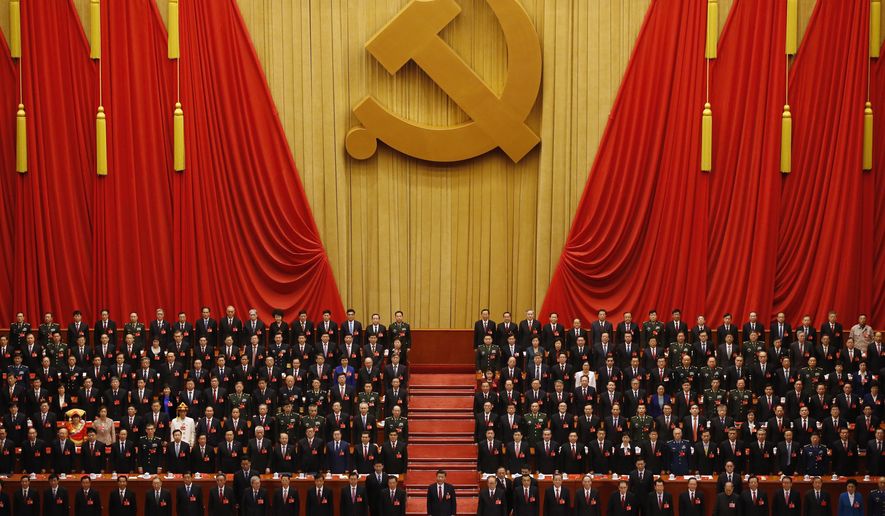Mike Pompeo
The Chinese Communist Party’s recent passage of its new foreign relations law underscores the threat to free nations dedicated to preserving a free and open Indo-Pacific.
The new law will strengthen CCP Chairman Xi Jinping’s ability to impose “countermeasures” on actions he deems threatening to his interests, furthering his goal of establishing a CCP-centric, CCP-led order in opposition to nations that wish to preserve peace, stability and freedom.
For four years, the Trump administration kept the Chinese communist threat at bay, principally by working with our partners in Japan, India and Australia to revitalize the Quadrilateral Security Dialogue (Quad). At this time in history, embracing the Quad‘s model is even more important as we seek to oppose the CCP’s ambitions and maintain a truly free and open Indo-Pacific.
Since the end of the Cold War, a troubling trend of pursuing multilateralism purely for its own sake has developed.
This pursuit has led to entirely predictable outcomes: Multilateral entities initially founded to safeguard shared interests and secure common objectives — such as the World Health Organization and the U.N. Security Council — have become corrupted by nations whose goals are hostile to those of free nations.
For instance, China used its power within the WHO to cover up its responsibility for unleashing the COVID pandemic on the world. Russia occupies the U.N. Security Council’s presidency, despite its currently waging a war of aggression against a sovereign nation.
These problems illustrate a crucial point: When nations do not share our values and oppose our interests, we cannot expect them to be restrained by multilateral agreements or institutions.
While these outcomes might lead some to conclude that multilateralism is worthless, we in the Trump administration saw things differently. We knew that partnerships were vital, but we also knew they worked only if we joined nations that truly shared America’s common interests and values such as human rights based on freedom of religion, speech and conscience. Thus, the new Quad was born.
The story of the Quad’s founding is one of persistence and creativity. Though initially launched in 2007, various disputes kept the partnership from gaining momentum and realizing its potential. This changed in 2017 when Japan’s then-prime minister, Shinzo Abe, saw the potential. Rightly regarded as the father of the Quad, he stood alongside the Trump administration and reinvigorated the Quad as an important new tool for facing down Xi Jinping and the CCP.
Fortunately, we were blessed to have incredible leaders ready to work with us, including Australian then-Prime Minister Scott Morrison and Indian Prime Minister Narendra Modi. The formation of the Quad proved a testament to the enduring power of democracy to bring free peoples with shared interests together.
It wasn’t just more multilateralism for the sake of it; it was a concrete step toward building a partnership between free nations that shared a positive vision for the Indo-Pacific. This is a lasting legacy of Mr. Abe, whose assassination last year was a tragedy. He is greatly missed today.
Now and in the future, the Quad’s importance cannot be understated. Quad members represent 23% of the world’s population and 30% of global gross domestic product. Each possesses a strong military and real diplomatic power, while the flexibility of the partnership gives it the ability to be effective across greatly varied lines of effort.
Japanese Prime Minister Fumio Kishida did well in strengthening the defense and hosting the G7 Summit last May. As a Quad nation, Japan helped formulate the G7 Hiroshima Leaders Communique that says, “we reiterate the importance of a free and open Indo-Pacific, which is inclusive, prosperous, secure, based on the rule of law, and that protects shared principles including sovereignty, territorial integrity, peaceful resolution of disputes, and fundamental freedoms and human rights.”
Thus, Quad nations are well positioned to collectively lead the way in confronting China’s military expansionism and economic aggression throughout the region. This is especially important in light of Mr. Xi’s open threat toward the nations of Northeast Asia through its aggression toward Taiwan.
Its strong navies can enhance maritime security cooperation across the Indo-Pacific, both through joint military operations and by securing the freedom of navigation in international waters that Xi Jinping claims as China’s sovereign territories.
And the Quad’s large economies can help fellow Indo-Pacific partners reduce the risk to their supply chains with respect to China, an issue many nations finally woke up to in the early days of the pandemic, when reliance on China for personal protective equipment put them in an extremely vulnerable position.
The foreign relations law recently enacted by the CCP signals Mr. Xi’s intent to retaliate economically whenever another nation dares cross him. We should respond by de-risking our own supply chains and helping others do the same.
Finally, we should remember that the Quad partnership is best seen as the beginning of a broader effort to create a critical mass of nations that wish to secure a free and open Indo-Pacific for years to come.
To that end, members of the Quad should continue to seek common cause with nations dedicated to freedom, such as South Korea or Taiwan, and build even stronger partnerships to oppose the CCP’s tyranny. If we do this, I have no doubt the Indo-Pacific will remain free, open and prosperous for years to come.
• Mike Pompeo served as the 70th secretary of state and as director of the CIA in former President Donald Trump’s administration. He was elected to four terms in Congress representing the 4th District of Kansas.

No comments:
Post a Comment